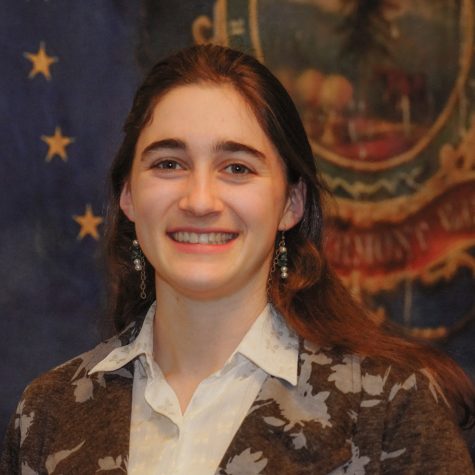Thank you, Kind Sir
I fell into love with a man a few nights ago and got a chocolate bar out of it –53% cocoa with pistachios and hot peppers, wrapped with a picture of Grace Potter. While I am neither a fan of chocolate nor the singer, the bar, more than half eaten, lays on the front passenger seat in my car as though it were going along for the ride with me. In a way, it does act as another passenger; one who reminds me that even in today’s cold world, there are people who remain genteel and thoughtful.
I use the word love in more a brotherly, world-connectedness way than I hoped to be asked to a candle-lit dinner with champagne and then be taught to tango, although the man was quite good looking; strong and fit, dressed in an expensive ski jacket, and carrying an armful of organic cheese when I encountered him.
I opened the door to the walk-in freezer at the store, and then stepped aside to let him pass. In my usual old-fashioned manner, I tilted my head and gestured with my left hand. “Excuse me, sir.”
Generally people look at me warily, maybe even with scowls dragging down their cheeks, and I’ve gained the impression because so few strangers behave in a thoughtful manner that they assume I am somehow making fun of them. Some grunt a reply, most people whisper “thank you” in an automatic, robotic way, but few are pleased that I just took a moment to acknowledge their presence.
This gentleman, however, made my heart skip a beat.
“Oh, thank you, kind Madame!”
I stared at him the way I hated people staring at me when I am formal and courteous. Searching for the sincerity in his gesture, I found it within the warmth of his shining eyes and gentle smile. With a life of its own my lips shoved my cheeks so far up my face I developed crow’s feet.
We recognized kindred souls.
In my experience, saying “thank you, kind sir” or “thank you, kind lady” garners even more rancor than rudimentary politeness, so I stopped after the first few tries. For some reason 19th century pleasantries pushes me out of the realm of Suspicious and across the seas of Insanity into the land of Straight Jacket; I’ve actually been snarled at for calling someone a “kind sir.”
So far, this encounter was like a picture-book example of how to properly greet a stranger and it was euphoric. Eye contact. Smiles. People stepped out of the way to let the other go first. In New York City we would have been arrested for disturbing the peace.
“Wouldn’t it be nice if everyone in the world operated on simple kindness,” I asked as I slipped into the refrigerated room of milks, cheeses, and yogurts.
Although he had had his back turned from me he quickly spun about, smiled, and then tapped his temple, “If you believe the world operates on kindness, it does.” Then he tipped his head in the same manner I often do and he left.
I was giddy with delight; I really wanted to know who this man was now, if he lived in some sort of compound where being nice and polite all the time was a requirement, and if they had any free floor space because my husband and I had our own mattresses and fake plants we could bring with us.
Silly, isn’t it? To become so happy from an encounter that, though charming, lasted less than 60 seconds? My day had gone from mediocre to heart-warming by an incredibly simple act, no strings or dollars attached.
I am not a depressed person; quite the contrary. I can’t help but consider, then, how these basic niceties could improve the lives of so many others. I simply don’t understand how it’s gone to the wayside of antiquity.
Later, while searching for sweet potato chips near the front of the store, I saw him again, this time checking out with the foreign salesclerk who was kept asking, “What?” loudly. Bemused, I listened in, wondering if he had referred to her as a kind lady and her English education offered no direct translation.
“I don’t know her, but I want to leave this for her,” he said, holding up a small square. “She’s got brown hair and – oh! There she is.” He had spotted me and marched over to where I stood. “I’m Ron,” he said.
We shook hands.
Pink-faced at being caught staring from behind flax-seed crackers, I told him my name quietly. I’m rarely quiet.
“I wanted you to have this.” He slipped the small square into my hand.
It was chocolate. I stared. I was on a wheat-free and sugar-free diet, but I would never turn down kindness. My mind whirled. What did the chocolate bar mean? Was this the moment I tell him I was married? Somehow, our interaction felt that intimate. Instinct, however, caused me to thrust an open bag of blueberry rice-cakes in his face, “Please, have one of these.”
He hesitated, almost ruining the parry of politeness for me, but then asked if it was gluten-free. I assured him it was. He took a few, nodded his thanks, and then stepped outside, whispering, “Pleasure to meet you, Victoria.”
I wondered: How can a chocolate bar almost make a person cry?
Nostalgia was never an affliction I struggled with before and people who collect mementos mystify me; I’ve scoffed at those unable to part with what I consider silly trinkets. Now I have a half-eaten lump of chocolate riding shotgun everywhere I go. I realize I must eat the rest before summer turns it into oozing goo on my seat, but the wrapper will remain.
My husband doesn’t seem jealous that Ron rides beside me in my car now and he may just think I’m on a pleasure cruise on the sea of Insanity, but I look at the chocolate, smile, and remember: I am not alone and it doesn’t matter if most people think I am awkward or anachronistic; kindness is a powerful magic.
It’s easy to forget that in our fast-paced, greedy world, so the bar with its Grace Potter image is strategically placed to be the first thing I see when I enter the car. Beside it lays a paper I added, a black-and-white picture of the Dali Lama with his quote, “Be kind whenever possible. It is always possible.”







